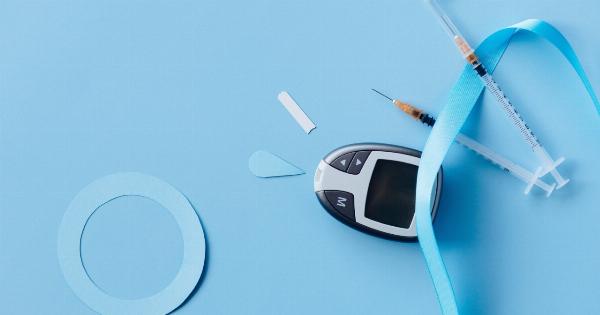Diabetes is a chronic condition that affects millions of people worldwide. It is characterized by high blood sugar levels due to the body’s inability to produce enough insulin or effectively use it.
While many individuals are aware of the common symptoms of diabetes such as excessive thirst, frequent urination, and unexplained weight loss, there are also more subtle signs that often go unnoticed. Recognizing these subtle symptoms is crucial for early detection and proper management of diabetes. In this article, we will explore ten subtle symptoms of diabetes that you should not ignore.
1. Fatigue and Weakness
Feeling tired and depleted of energy could be an indication of diabetes. When blood sugar levels are too high, it can affect your body’s ability to convert sugar into energy effectively.
As a result, you may feel constant fatigue, even after getting enough rest.
2. Frequent Infections
People with diabetes may experience more frequent infections such as urinary tract infections, yeast infections, and slow-healing wounds. High blood sugar levels can weaken the immune system, making it harder for your body to fight off infections.
3. Blurred Vision
Diabetes can cause changes in the fluid levels in your eyes, leading to blurred vision. If you notice that your vision is gradually becoming blurry, it is important to schedule an eye examination, as it could be a sign of diabetes.
4. Dry Mouth and Increased Thirst
Excessive thirst, accompanied by a dry mouth, can be an early indication of diabetes. When blood sugar levels are high, your body tries to eliminate the excess glucose through increased urination, leaving you dehydrated and in need of more fluids.
5. Tingling Sensation
Diabetic neuropathy is a condition that affects the nerves, often leading to a tingling sensation or numbness in the hands and feet.
If you frequently experience this sensation, it is essential to consult a healthcare professional to determine the cause.
6. Skin Changes
Diabetes can cause changes in your skin, including dryness, itchiness, and slow wound healing. If you notice persistent skin issues or slow healing of cuts and bruises, it is recommended to get evaluated for diabetes.
7. Unexplained Weight Gain
While unexplained weight loss is a more commonly known symptom of diabetes, some individuals may experience weight gain due to insulin resistance.
If you notice steady weight gain despite a consistent diet and exercise routine, it is worth considering diabetes as a possible cause.
8. Increased Hunger
When your body cannot effectively use insulin, glucose is unable to enter the cells to provide energy. This can lead to constant hunger, even after consuming a proper meal.
If you find yourself feeling hungry shortly after eating, it may be a sign of diabetes.
9. Mood Swings
Fluctuations in blood sugar levels can impact your mood and lead to irritability, anxiety, and even depression.
If you notice unexplained mood swings or changes in your emotional well-being, it is important to consult a healthcare professional for evaluation.
10. Increased Urination at Night
If you find yourself waking up frequently during the night to urinate, it could be a symptom of diabetes. High blood sugar levels can cause excess glucose to be eliminated through urine, leading to a need to visit the bathroom multiple times.
While these subtle symptoms may not initially seem alarming, they should not be ignored. Early detection and diagnosis of diabetes are vital for managing the condition effectively and reducing the risk of complications.
If you are experiencing any of these symptoms, it is crucial to consult a healthcare professional for evaluation and appropriate testing.
In conclusion, recognizing the subtle symptoms of diabetes can make a significant difference in early diagnosis and effective management. Pay attention to your body and seek medical attention if you experience any of these warning signs.
Remember, taking control of your health begins with awareness and proactive measures.






















